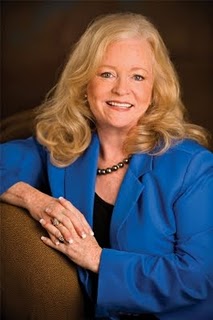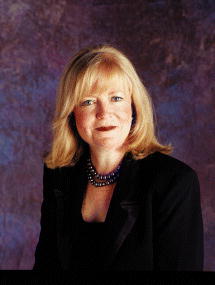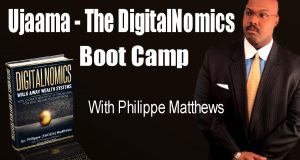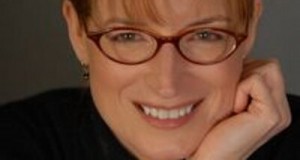
By: Philippe Matthews
Philippe Matthews
Talk to me about the difference between good debt and bad debt.
Sharon Lechter
“An example of good debt verses bad debt is where you have good debt on a piece of real estate where your tenant is making your payments and you have positive cash flow at the end of each month. That being said, should the value of that real estate go down and as long as you are still getting a monthly cash flow, you are only impacted on the value of the property when you are buying or when you are selling so if that property continues to generate a positive cash flow then you have an asset because it is putting money in your pocket every month and that is good debt. Bad debt is when you go buy the new stereo or the new furniture or the bigger house then you are saddled with the debt that you have to pay. It is money out of your pocket every month. Good debt is still yours but it is being matched or exceeded by your income.”
Philippe Matthews
Talk to me about the difference between investing in capital gains verses cash flow.
Sharon Lechter
“The basic two ways to evaluate properties is cash flow and capital gains. People who flip properties are doing it for capital gains. People who are buying to rehab and sell are doing it for capital gains. Capital gain is determined at two points in time – when you buy and when you sell. You are not necessarily the one in control of what those values are going to be because it is a market driven calculation. Cash flow is something that the property through your tenants or through your other revenue sources are generating to offset monthly operating expenses. It’s an operational accounting formula and there are multiple things that you can do through your property management, through increasing revenues, finding ways to decrease expenses that you can increase your monthly operating cash flow. There is a place and a time and an investment opportunity for investing for capital gains but you need to know which you are doing and you need to know what your ultimate goal is.”
Philippe Matthews
So this is what you mean by having an exit strategy?
Sharon Lechter
“Yes, because obviously even in a cash flow driven purchase your ultimate goal is that when you sell that property that you are going to want to make a capital gain on it. But when you have a property where you are only looking at the capital gain you may be holding that real estate for a period of months where it is actually a liability to you to pay for those operational expenses in the interim. So it is best to look at a property that puts money into your pocket every month on a cash flow basis. Once you put a dollar in your asset column, it’s an employee for you, keep it there.”
Philippe Matthews
P132 of Who Took My Money, you said bad debt is worse than being poor. Could elaborate on that more please?
Sharon Lechter
“Its one thing not to have anything, it is another to have people coming after you. It is one thing to have a very limited amount of resources for yourself and your family and that is a traumatic station in life to be poor but you add the stress of having yourself in debt and you cannot make those payments so, you have all of these people coming after you. From an emotional standpoint it is a much worse position to be in.”
Philippe Matthews
Most of the American population have poor debt so how do they get into real estate?
Sharon Lechter
“The first step is educating yourself and the second is taking small steps and control of your personal debt or bad debt. We have a Getting Out Of Debt model in our second book, Cash Flow Quadrant and it is a systematic approach to reducing your bad debt. We recommend that you start small and make your mistakes on a duplex and create that opportunity for hands on learning and then continue educating yourself by going to real estate clubs and not just the Rich Dad products. Get around like-minded people, finding the mentors that you need and as you grow in wealth your mentors will change and your advisors will change.”
Philippe Matthews
Talk to me about those advisors and building a team. Why is it so important to build a team?
Sharon Lechter
“I’m sure you are familiar with the Cash flow Quadrant. Well, the right side is the investor where the wealth is built and that is a team sport. That is where you are using other people’s money, other people’s time or your money is actually working for you. It is stressed in all of our products; it’s knowing who to ask the question to. You don’t need to know everything but you need to know what questions to ask your advisors. To understand when your advisor says something to you like ‘have you considered component depreciation?’ We want people to understand what they are asking. Not to be able to do it but understand the education that there are opportunities related to increasing your cash-on-cash return.”
Philippe Matthews
How does one begin to look for their advisors?
 Sharon Lechter
Sharon Lechter
“This is our most frequently asked question and when I am at events, I say, ‘look around the room. There are two thousand people in this room and how many of you have good advisors?’ Ask the people you are around. Network with people who are successful in what you want to do. If you want to invest in duplexes, know someone who owns duplexes and ask them who their advisors are. You don’t want to pay your advisors to learn on your dime. You want advisors who already know what you want to do and can guide your through that path.”
Philippe Matthews
So you need an exit strategy for your advisors as well?
Sharon Lechter
“You want to ask them who their other clients are. Do their clients do what you are doing or want to do? Do they themselves invest? It’s not a requirement but certainly a bonus because they will understand the components of your side of the equation. You can also start going to local real estate clubs, local investment clubs, and network so you are with like-minded people. You can also come on richdad.com and our discussion forms and we have cash flow clubs all over the world where people get together and play our board game, Cash Flow. At the bottom of the list is going and asking the advisors questions. In Our Choose To Be Rich product we have a whole section on what to ask your advisors and how to find advisors.”
Philippe Matthews
Throughout the book, you talked about the 20/10/5 year cycle. What is that mean?
Sharon Lechter
“It’s an economic model and it is one that if you look back every 75 years we have a depression. The 20/10/5 cycle is understanding that there are bubbles and there are corrections and there are opportunities. When people say, ‘aren’t you so worried about the real estate market crashing?’ in actuality, we are pretty excited about that because when it does it is an opportunity.”
Philippe Matthews
You talk about precession and lag in the book. What is that?
Sharon Lechter
“If you imagine a stone dropping into water and from that stone you have rings that expand so that the action of the stone coming into the water creates a ripple effect that is precession. If you think about the time when you dropped the stone to the time it hits the water and the time the ripples hit the outer ring that is the lag. So if you think about the stock market boom, the early adapters – the ones who truly started things happening, they made most of the money and the individual who got in at the top were the ones who got hurt because they didn’t have the fundamentals and education. This is what we see right now in the real estate market, a lot of people are jumping in because they think they need to be in the real estate market because it is going up so fast but they are doing it without the proper education, without the proper analysis, without looking at the cash flow or if it is a good deal for them.”
Philippe Matthews
You say in the book if a lot of armatures jump into the market that is a sign for the real investor to move out.
 Sharon Lechter
Sharon Lechter
“That is exactly when you want to get out.”
Philippe Matthews
Conclude this interview with me by talking about paper assets. How much should one rely on paper assets?
Sharon Lechter
“Paper assets are how the rich hold their wealth in real estate and then paper. You have to have an overall plan and consider business, real estate and paper assets as a three-legged stool. If there is a recession in the real estate market then you have a business that is generating cash flow and paper assets. You have the opportunity to be truly diversified. A financial planner or stock broker will talk about being diversified by having multiple funds which is not diversification to us. Paper assets are good but if you don’t want to educate yourself then mutual funds is your fall back position. If you educate yourself and look at how best to move your money and how to grow your money then there are other paper asset in which you can accelerate your income. Through IPO’s, through private placement memorandums, through hedge funds, through tax exempts. But again, if you are not educated, your risk goes up. Your level of risk is not based on your money it’s based on your education.”
Read Sharon Lechter Answers and Reviews Who Took My Money – Part 1
Special Offer http://bit.ly/eYxmQR

 Philippe Matthews Show Guru Advice, Author Reviews, Tech Reviews, Entertainment News
Philippe Matthews Show Guru Advice, Author Reviews, Tech Reviews, Entertainment News






